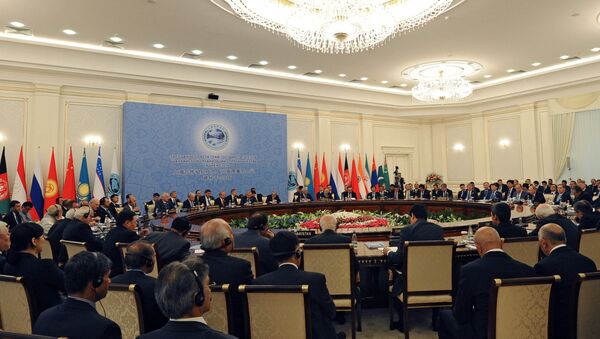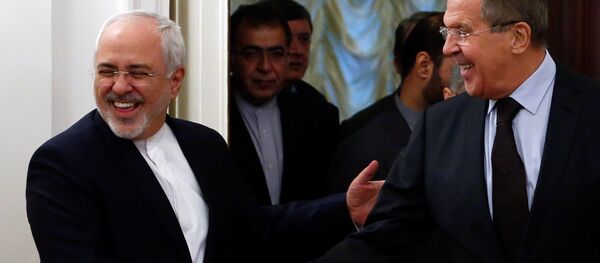The ceremony was also attended by China’s Assistant Foreign Minister Kong Xuanyo, who responded to a question that India-Pakistan tensions could have a negative effect on SCO.
"In the charter of the SCO, there is a clause that the hostility between the bilateral relations should not be brought to the organization. I believe both the countries will abide by the charter of the organization. Between our member states, our interests far outweigh our differences," PTI quoted Xuanyou as saying.
Experts said both India and Pakistan will benefit from the “Shanghai Spirit”.“India and Pakistan are fast learning to set bilateral issues aside to focus on their multilateral priorities as seen during the Astana summit. The opening ceremony also saw Indian Prime Minister Narendra Modi meeting his Pakistani counterpart Nawaz Sharif after 17 months,” Swaran Singh, professor at School of International Studies, Jawaharlal Nehru University, New Delhi, told Sputnik.
Experts agreed with India’s Ambassador Gokhale that “SCO is important for India as it consists of China, Russia and Central Asian states… and it can also help India and Pakistan to resolve their differences.”
“India and Pakistan may benefit from the memorandums of obligation, signed under the aegis of the SCO, which includes provisions for joint military drills. While Indian and Pakistani militaries have worked together in a few UN peacekeeping operations, for the first time they will participate in regular joint military exercises in close formation as SCO members. Most importantly, their militaries will train together in countering terrorism, a menace for which they often blame each other. There also exists well-structured mechanisms for sharing information and intelligence through the RATS, which could help them build mutual appreciation and understanding in the long run," Prof. Singh adds.
India and Pakistan were formally admitted as members at Kazakhstan capital Astana at the SCO Summit held on June 8-9.





